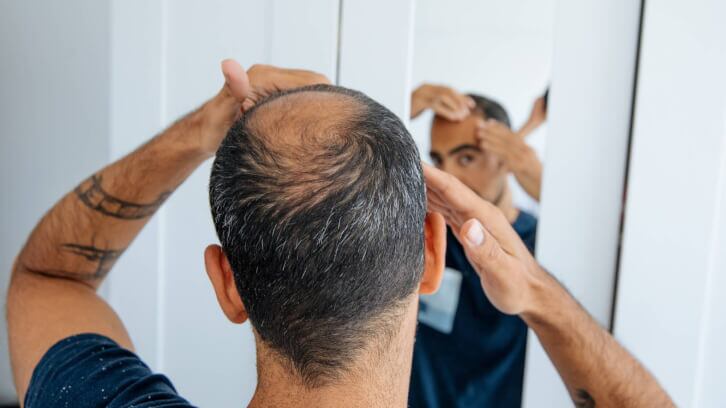Ageratum conyzoides, commonly known as billy goat weed, has traditionally been used in the Caribbean for prostate and urinary health. However, data from a pilot, open-label, randomized, parallel and in vitro study published in 2021 in the Journal of Cosmetology and Trichology indicated that the extract may have efficacy against hair loss when applied topically.
Data from a new randomized, double-blind, placebo-controlled trial with 84 healthy women and men showed that Gencor’s HairAGE-branded Ageratum conyzoides extract has the potential to increase hair growth and decrease hair loss when taken orally as a supplement.
Writing in the Trichology and Cosmetology Journal, researchers reported that 250 mg per day of HairAGE for 12 weeks led to a significant reduction in the appearance of hairline recession, compared to placebo.
Commenting on the study’ findings, R.V. Venkatesh, Co-founder at Gencor (sponsor of the new study), said: “This clinical trial supports the mechanism of action as well as showing hair recession consistent with what we have seen in the in-vitro, open-label, and double-blind topical studies with HairAGE.
“According to this research, HairAGE can now effectively be incorporated as an oral dietary supplement for improved hair health, giving more flexibility in applications for women and men.”
Study details
For the new study, 84 men and women with hair loss were randomly assigned to 12 weeks of supplementation with the A. conyzoides extract in an oral formulation or placebo.
Results showed that the HairAGE group experienced significant reduction in hairline recession, compared to placebo, as measured by the distance from the eyebrow to the start of the hairline.
For hair density, measured using HairCheck, there was a trend towards statistical significance for greater hari density in the A. conyzoides extract group, compared to placebo.
On the other hand, no differences between the groups were observed for hair loss (measured by the average number of hairs lost in a one-minute combing test and hair/tug pull test), or by assessments using the Norwood/Hamilton and Ludwig-Savin scales for male and female pattern baldness, respectively.
A significant difference was found in the change from baseline for total prostaglandins between groups at week 12, with a decrease from baseline in the active group and an increase in the placebo group. In males, a significant difference in the change from baseline was seen for type-2 5a-reductase, with a decrease from baseline in the active group and increase in the placebo group.
These results demonstrate an improvement in hair growth following the 12-week oral supplementation of A. conyzoides extract, with mechanistic convergence.
Biochemical analysis showed that the A. conyzoides extract group experienced a substantial reduction in total prostaglandins, suggesting a balanced inflammatory response for improved hair health.
Additionally, male participants experienced a statistically significant reduction in the change from baseline in type-2 5a-reductase – known to influence hair loss and thinness – with a decrease from baseline in the HairAGE group and an increase in the placebo group. This again validates the action of inhibition of 5-Alpha Reductase, as seen in its earlier in-vitro study.
The researchers stated that additional trials will “determine whether the effects on hair growth are sustained over the longer-term.
“We cannot at this stage say what happened after the 12-weeks, as Ethics Committee approval was restricted to a 12- week trial. Further trials will-determine whether the effects on hair growth are sustained over the longer-term, before decisions can be made regarding commercialization,” they concluded.
Source: Trichology and Cosmetology Journal
2023; 6(1): 1-6. doi: 10.17140/TCOJ-6-119
“Efficacy of an oral Ageratum conyzoides formulation on increasing hair growth and decreasing hair loss in males and females: A randomized double-blind placebo-controlled study”
Authors: P. Clayton, et al.


